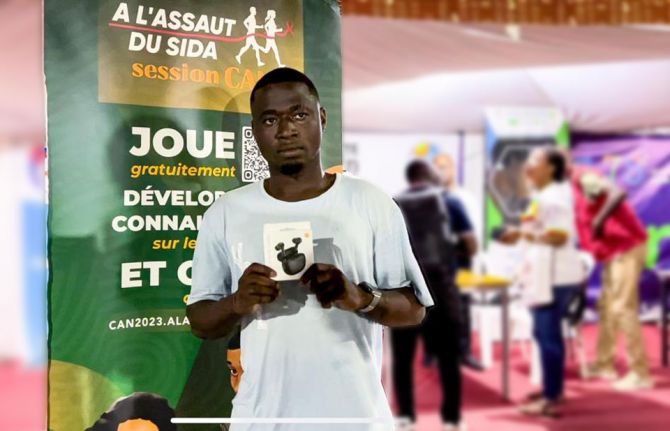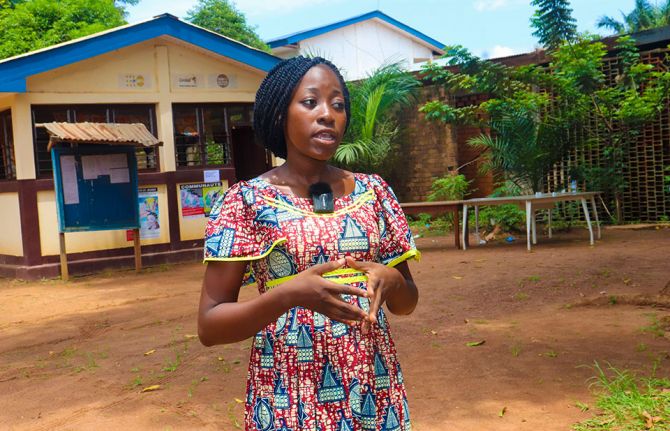
Feature Story
“Right for you!” Satellite puts young people centre stage at Vienna
22 juillet 2010
22 juillet 2010 22 juillet 2010 Right for you! satellite. Credit: UNAIDS/Anna Rauchenberger
Right for you! satellite. Credit: UNAIDS/Anna RauchenbergerThe thoughts and voices of young people took centre stage at the Vienna AIDS Conference yesterday as an innovative satellite session explored how they can best protect themselves from HIV. The session was organized by UNAIDS, UNESCO, UNFPA, UNICEF and WHO. It provided an interactive platform for youth from around the world to discuss sexual and reproductive health services and provision of comprehensive information including sexuality education, condom use and HIV counselling and testing.
Called ‘Right for You! Creating Game Changing Strategies for HIV and Young People’, the event was structured around the outcome of an online survey, promoted across varied social media platforms, such as Facebook, Twitter, AIDSspace and Conversations for a better world, to find out what young people really think about how to mount a meaningful and effective personal challenge to HIV. It was moderated by Ms Purnima Mane, United Nations Population Fund (UNFPA) Deputy Executive Director (Programme).
The session explored how to achieve three bold goals for young people:
- Ensure at least 80% of young people in and out school have comprehensive knowledge of HIV.
- Double young people’s use of condoms during their last sexual intercourse.
- Double young people’s use of HIV testing and counselling services.
‘Empowering Young People to Protect Themselves against HIV’, is one of the priority areas of the UNAIDS Outcome Framework 2009-2011. The aim is to reduce new HIV infections among young people by 30% by 2015.
The three goals discussed in yesterday’s satellite are far-reaching and ambitious in scope. They were highlighted in the UNAIDS business case on empowering young people. The business case is an advocacy tool which outlines why UNAIDS has prioritized young people and it recommends that the three results should be achieved in at least 9 of the 17 countries that have largest number of young people living with HIV by 2011, as well as in countries experiencing low and concentrated epidemics.
Those gathered at the event discussed how such results can be achieved and how the necessary good quality programmes can be scaled up at country level. An expert panel that included a youth facilitator, Ishita Chaudhry from India, Dr Doug Kirby, co-author of International Technical Guidance on Sexuality Education: An evidence informed approach for schools, teachers and health educators, Darlington Muyambwa, Programme Manager, SAYWHAT Programme, Zimbabwe , and Shaffiq Essajee, WHO, responded to feedback from participants who expressed their views or asked questions via the web forums.
Exploring ways of empowering young people to protect themselves against HIV is vitally important given latest estimates showing that 15-24 year olds account for some 40% of all adult HIV infections globally. In 2007, far fewer than half of young people around the world had accurate knowledge about HIV.
Additionally, in many parts of the world young people have inadequate access to sexual and reproductive health services and commodities like condoms. Socio-cultural norms can act as barriers to these essential services and commodities which discourage young people from learning about and discussing sex and sexuality and accessing the services. The session explored ways to address these challenges and empower young people to make informed decisions about this key aspect of their lives.





